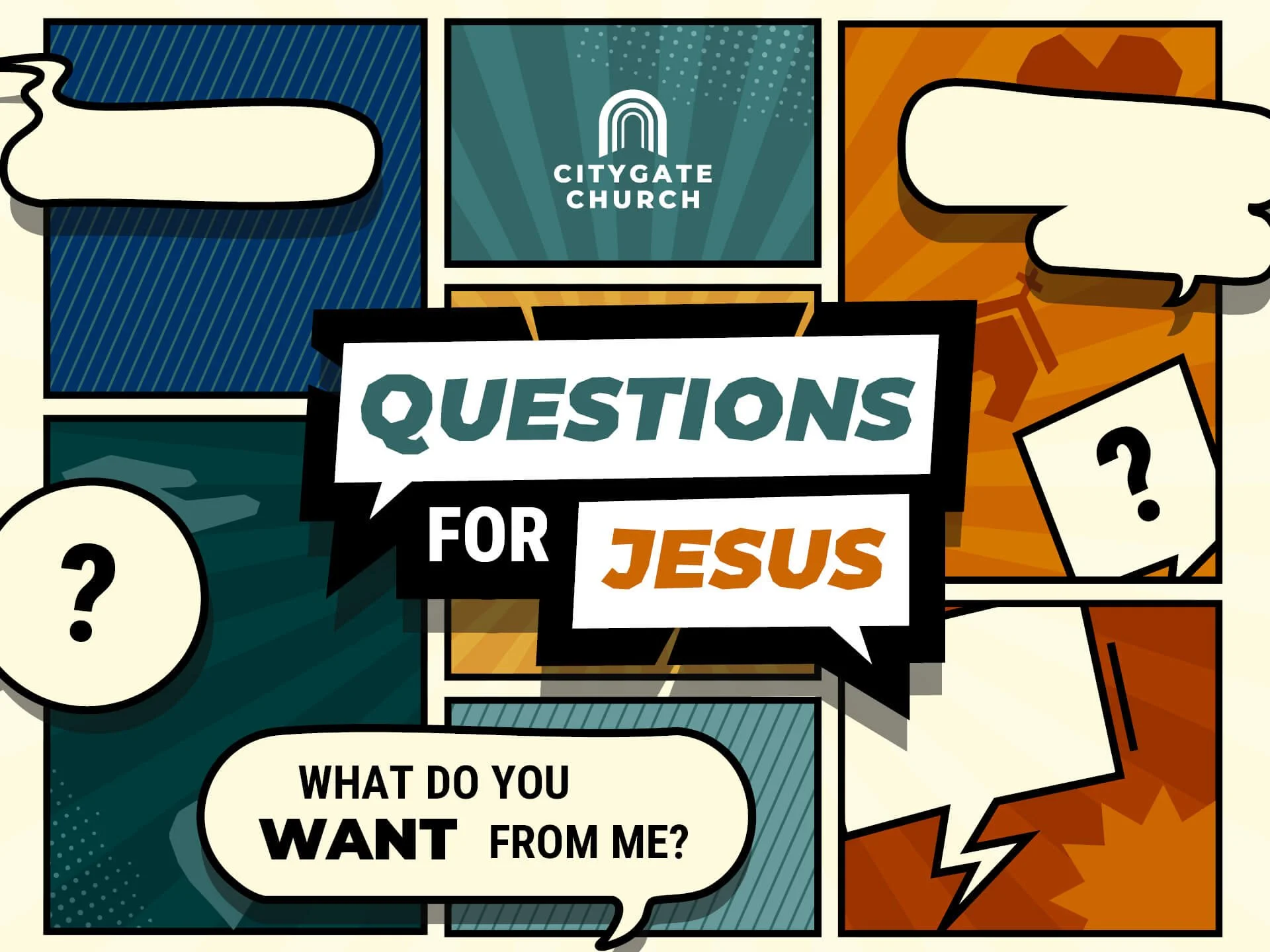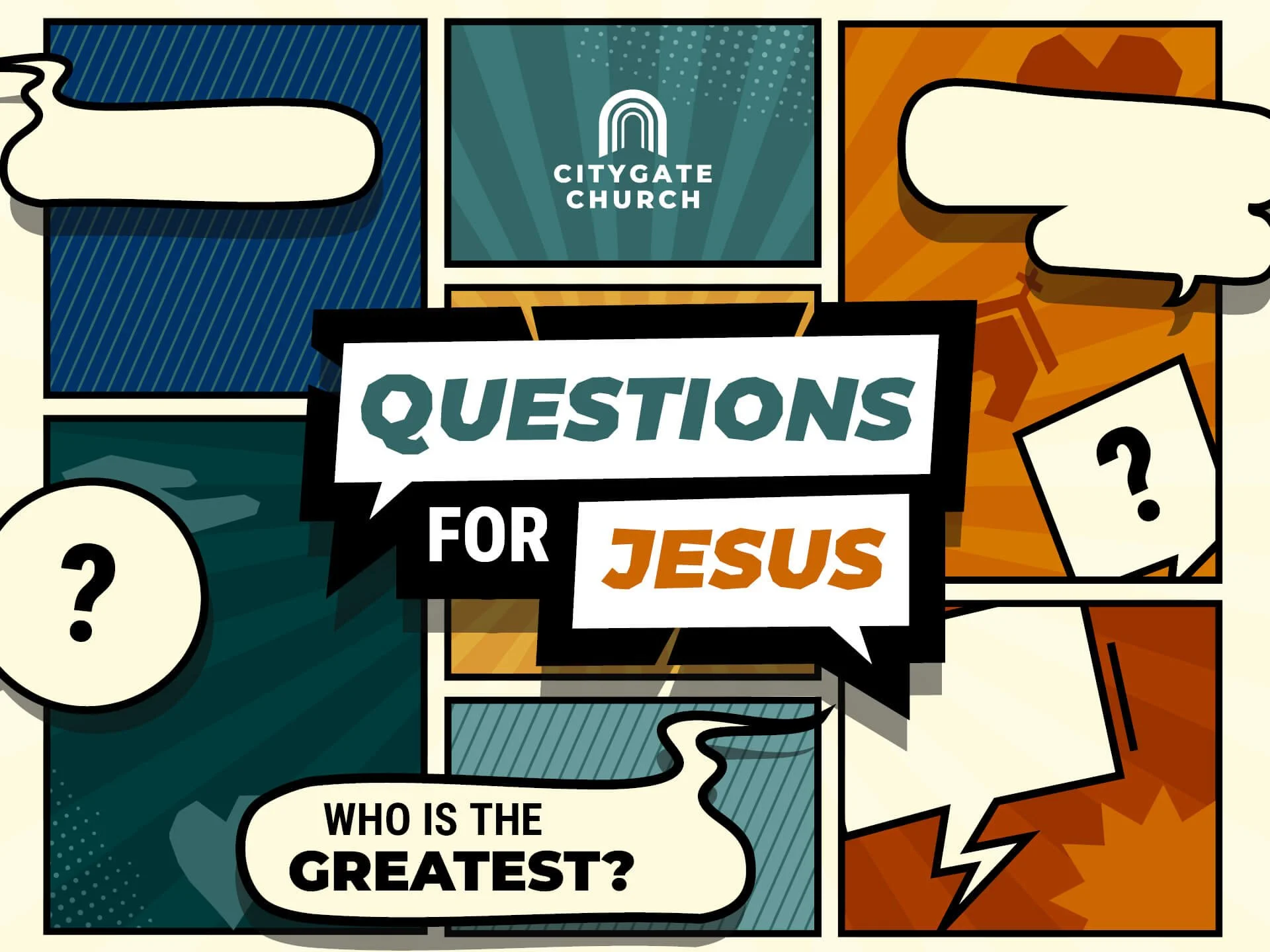Questions for Jesus | What Do You Want From Me?
About this series:
In each of the gospels we find Jesus asking questions of his disciples, the crowds and his opponents. And we also find Jesus being asked questions - by his disciples, the crowds and his opponents. Here, we will take 10 questions people asked of Jesus, the first from Luke’s gospel to set up the series and then the rest from Matthew’s gospel.
As well as working through the specific passages, we will aim to encourage people to consider what questions they would like to ask Jesus. The hope is that by looking at Matthew’s gospel in this way, we will see more clearly who Jesus is, be inspired to follow him and learn to be honest about our own questions as we grow to become more like him.
About this talk:
Previously, the Pharisees had sent their disciples along with the Herodians to trap Jesus with a question about paying taxes to Caesar (vs 15-22). The Sadducees follow by asking a question about marriage at the resurrection (vs 23-33). Matthew then records a third group questioning Jesus, no doubt again to trap him: “Hearing that Jesus had silenced the Sadducees, the Pharisees got together. One of them, an expert in the law (possibly sent to represent the whole group), tested him with this question: “Teacher, which is the greatest commandment in the Law?” (vs 34-36). After this section, Jesus asked the Pharisees a question with the result that “no-one dared to ask him any more questions” (v 46).
The question of what God requires from mankind is an age-old question, answered by different faiths and cultures in wildly different ways. It’s completely understandable that if there is a god, he / she / it would expect those created to conduct themselves in certain ways. And so, in the Torah, the Jewish nation had many instructions about how they should relate to God and to his creation. It has often been pointed out that the Ten Commandments (a summary of the Law) was divided into two sections, the first four relating to how we should love God and the rest relating to how we should love people, the pinnacle of his creation. Various other ‘summary’ statements exist in the Old Testament (Psalm 15; Isaiah 33:15-16; Isaiah 56:1; Amos 5:4b; Micah 6:8; Habakkuk 2:4).
And so, in one sense, there is no surprise that Jesus should reply as he did: “Love the Lord your God with all your heart and with all your soul and with all your mind... [And] Love your neighbour as yourself.” But the rabbis divided the 613 commandments in the Torah into weighty and light, which opened the way to speculation about the relative weight of each commandment, and about which was the most weighty. The potential trap for Jesus here is that he could displease certain elements of the Jewish people if his answer differed from theirs. Perhaps his answer would prove, once and for all, just how far he was from mainstream Judaism.
Jesus’ answer, quoting Deuteronomy 6:5 (undoubtedly one of the most familiar parts of the Torah, being quoted daily by observant Jews) and Leviticus 19:18, brings love to the fore as the guiding principle for relating to God and to people. It is a succinct summary of what is most important in God’s estimation, within which all other Scriptural commands and expectations flow. And it also serves to highlight the intimate connection between loving God and loving people, in fact how loving people is evidence of loving God - ‘‘It is easy to fool oneself about loving God. But it is not too easy to fool oneself about loving people. One might think one is loving God; the real test is whether it leads to a love of people’ (Michael Eaton).
So what does God require of us? To love. First, to love him and then, as a result, to love others in ways that reflect his love for us. It is, perhaps, a seemingly simple requirement, but also a profound one; one that will require us to constantly experience his love for us and be empowered by his Spirit.
Audio only
Discussion Questions
"Love That Soaks, Overflows, and Changes Us"
Purpose :
To explore how God's love for us fuels our love for Him and others, and to reflect on how we are responding to Jesus' call to wholehearted love.
Part 1: Welcome & Ice-breaker (10 mins)
What's one of the most memorable presents that you've ever received?
Part 2: Read the Scripture Together (5 mins)
Main Text: Matthew 22:34–40 (NIV)
Jesus replied: "'Love the Lord your God with all your heart and with all your soul and with all your mind.' This is the first and greatest commandment. And the second is like it: 'Love your neighbour as yourself.' All the Law and the Prophets hang on these two commandments."
Supporting Texts (read aloud or assign in advance):
Micah 6:8 – "Act justly, love mercy, walk humbly…"
1 John 4:19 – "We love because He first loved us."
Part 3: Group Discussion (15 mins)
Discussion Questions:
What are some of the things that come to mind when you think about loving God with 'all' your heart, soul and mind?
Why do you think it's easier to follow specific rules rather than something broad like this reply?
Tim said, "We're like celery — we soak up the love of God." What helps you soak in God's love daily and what gets in the way?
Reflecting:
Ask people to take 2 mins to think through these questions and right down the answer. Then in smaller groups share what they've written.
Who is one person this week you could show God's love to in a way that might cost you something?
Is there a particular situation in your life where you need the Holy Spirit's power to help you love someone?
How can we keep from turning God's command to love into a checklist, rather than a relationship?
Part 4: Wrap-Up & Prayer (5 mins)
Bring everyone back together.
Read aloud: "See to it that your souls are happy in the Lord." — George Mülle
Challenge & Response:
This week, before rushing into doing, can we pause to soak in the love of God?
Ask the Holy Spirit to fill you so love naturally overflows to others — not like a hot tub, but like a river.
Prayer Prompt:
Invite 2–3 volunteers to pray:
One thanking God for His love.
One asking for help to love others.
One inviting the Holy Spirit to empower us.
Takeaway Verse for the Week:
"We love because He first loved us." – 1 John 4:19
You might suggest they write it on a post-it or set it as their phone background this week. Open with a short prayer asking God to speak clearly and personally to each person.
Ask: "What are some words that we might use as synonyms for devotion?"












